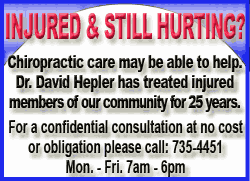|
 Parkland officials said the bill was appropriate because a nurse spent time checking her vital signs to assess her level of need. Parkland officials said the bill was appropriate because a nurse spent time checking her vital signs to assess her level of need.
But that's not how Milbrodt sees it. "It should have been more like them paying me for having to sit in the emergency room for 19 hours," she told The Dallas Morning News.
The assessment by the nurse, which lasted a few minutes, established her place in line that night. By that time, Milbrodt said, she had already been waiting about 3 1/2 hours.
She still had not been called more than 15 hours later, so she gave up and went home. She
said an X-ray taken at a chiropractic school where she is a student had already confirmed that she had a fracture.
"She's not paying for waiting," says Rick Rhine, the hospital's vice president in charge of billing. "She's paying for the assessment she received."
Milbrodt, 29, who has no insurance, said she does not plan to pay. After leaving the ER, she rested at home for a few days and then put her leg in a brace, which she still wears. It seems to be healing, she said.
A few days before Milbrodt's visit, a 58-year-old man who went to the ER with stomach pains also waited 19 hours
-- and then suffered cardiac arrest and died.
Hospital officials say they need more beds to handle the excessive number of patients who need care. A bond measure on the Nov. 4 ballot would provide funds for a new, larger hospital.
Fort Worth's large public hospital, John Peter Smith, shares Parkland's policy of charging for a triage assessment. But other hospitals in Dallas, such as Baylor University Medical Center, don't charge if the person never sees a doctor.
| 

